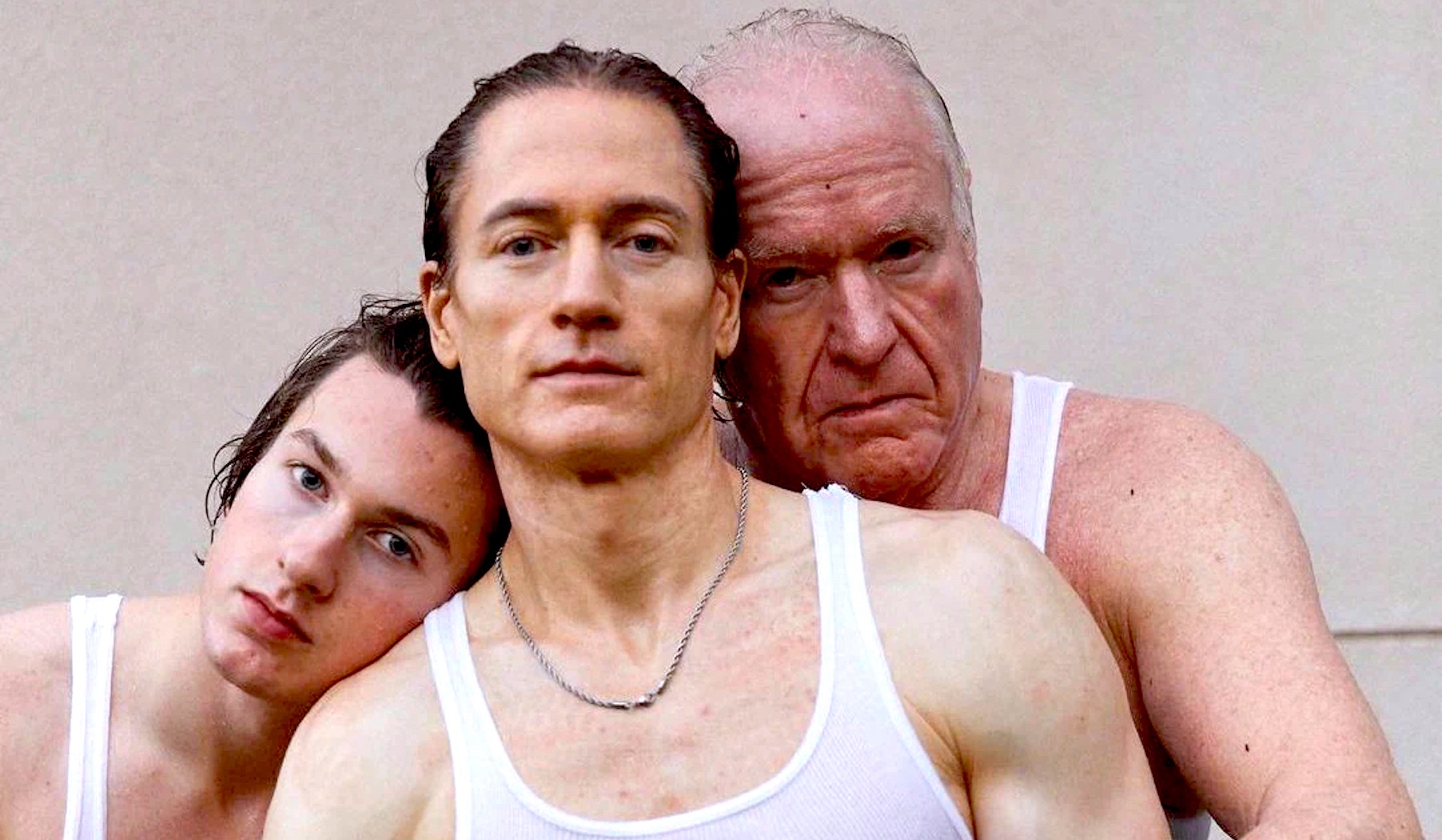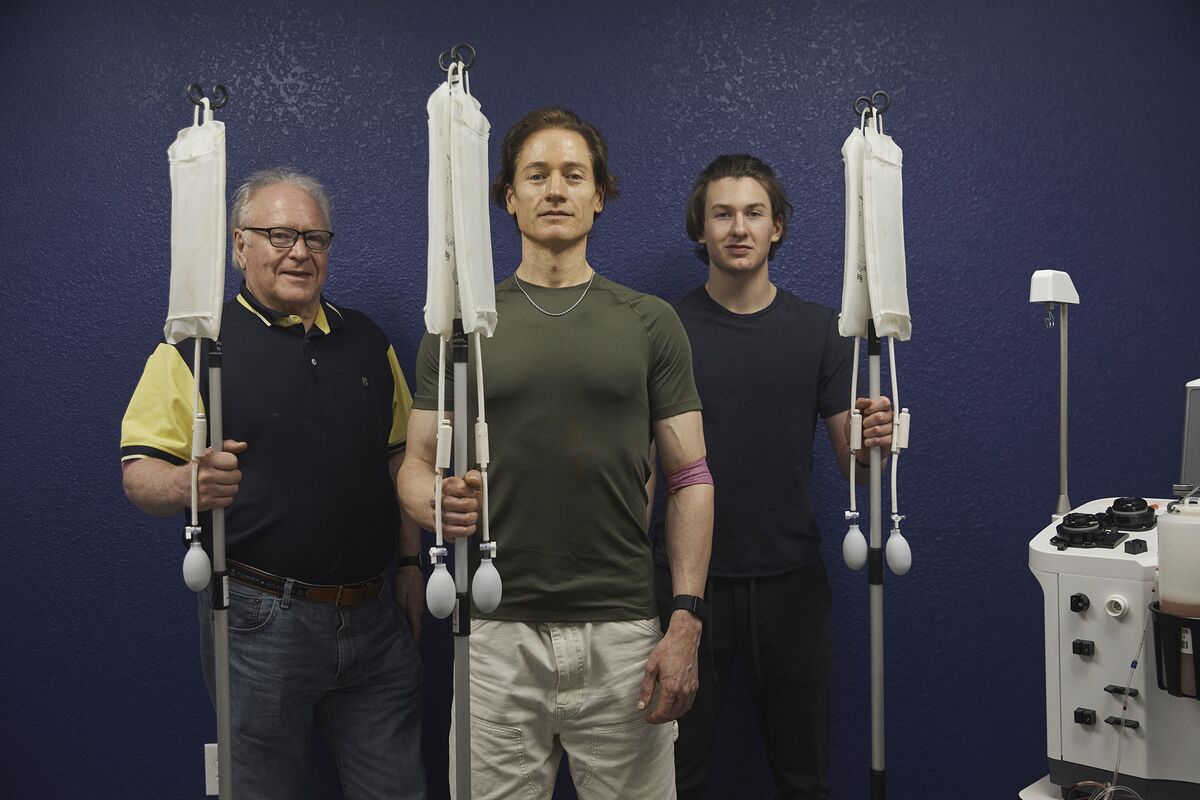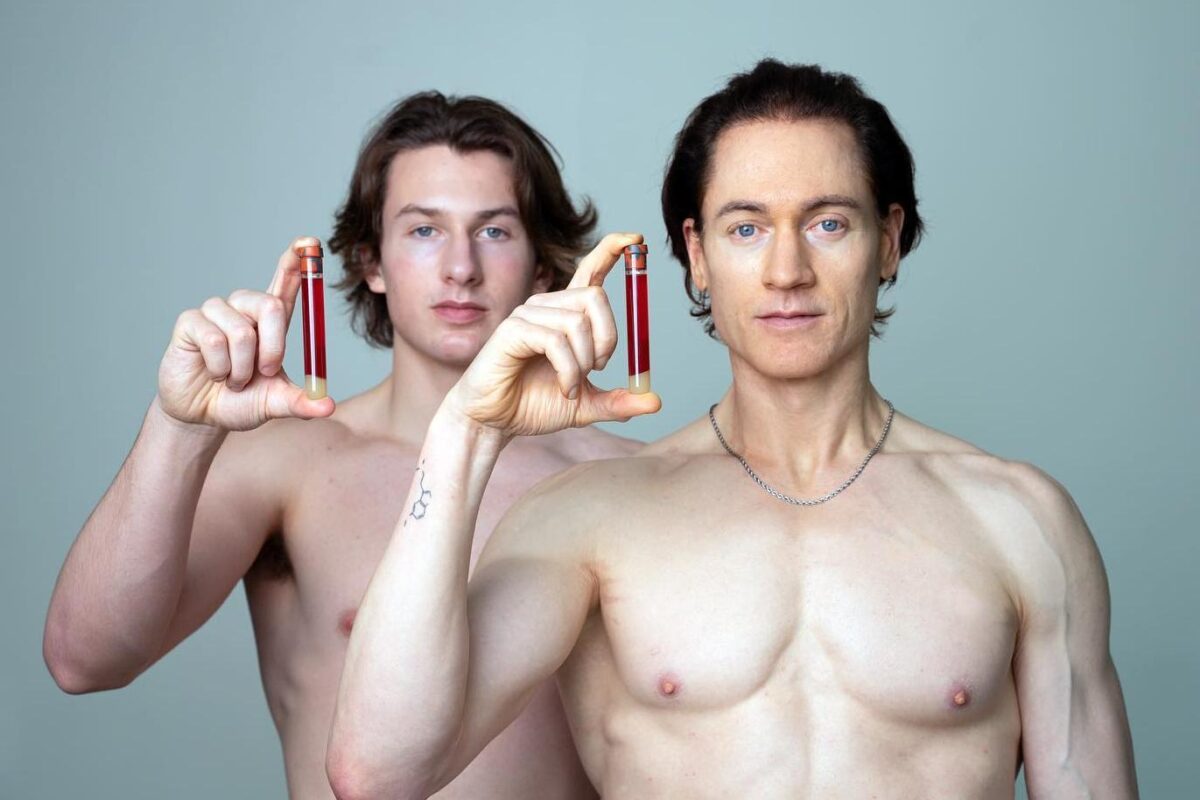
Renowned tech mogul Bryan Johnson continues his audacious endeavour of reversing the aging process. Sparing no expense, Johnson has now delved into the controversial realm of plasma transfusion, with a little help from his nearest and dearest.
Our usual reporting on tech moguls here at DMARGE is centred around Jeff Bezos' ongoing dramas with his brand new superyacht — which was finally spotted under sail for the first time last week — or one of many Elon Musk messes on offer. Most recently, his wise and long-overdue decision to step down as Twitter CEO.
That's why it comes as something of a relief to see a silicon valley success story investing his time and limitless cash in a somewhat more meaningful investment. Bryan Johnston, founder of payment platform Braintree and more recently neurotech firm Kernel, has taken his quest for eternal youth to another level.
WATCH: Don't fancy splurging your millions on blood swapping? Follow Jeff Bezos' lead...
Johnson, now famous for his relentless pursuit of youthfulness, has taken the bold and ethically questionable step of accepting plasma donations from his own family, including his 17-year-old son, Talmage, and 70-year-old father, Richard.
At a prestigious Dallas clinic, a cutting-edge machine processed their blood, separating it into distinct components. The liquid plasma, apparently brimming with the promise of vitality, was then injected into Johnson's veins with the aim of rejuvenating and repairing cellular damage caused by the aging process.
With an estimated net worth of half a billion dollars, Johnson — along with a dedicated medical team —has managed to reduce his biological age by over five years, including a heart comparable to that of a 37-year-old, the skin of a 28-year-old, and the lung capacity of an 18-year-old. These outcomes have catapulted Johnson to the forefront of anti-aging research.
 Happy families: Richard (left), Bryan (middle), and Talmage (right). Image: Bloomberg
Happy families: Richard (left), Bryan (middle), and Talmage (right). Image: Bloomberg
The wider scientific community remains divided over the efficacy of plasma transfusion as an anti-aging therapy. The concept gained prominence thanks to experiments conducted on mice, where muscle healing and liver cell regeneration suggested promising results that could potentially be repeated on human beings.
However, subsequent studies have revealed more conflicting outcomes, with blood transfusion from older to younger mice actually accelerating the aging process in the recipient animal. While Johnson's elderly father has so far emerged looking and feeling significantly healthier, the long-term effects on his son are yet to be determined.
Beyond incestuous blood swaps, Johnson adheres to a rigorous regimen he calls "Project Blueprint" to further bolster his anti-aging efforts. Including but by no means limited to electromagnetic pelvic floor stimulation, blue-light-blocking goggles, and maintaining a precise calorific intake, Project Blueprint has yielded positive results for Johnson and his father who report weight loss, enhanced mental clarity, and increased vitality.
 A fun family day out to the blood clinic. Image: The Times
A fun family day out to the blood clinic. Image: The Times
Johnson's ultimate goal is to restore all of his bodily functions to their peak youthful performance, effectively defying the effects of time. Unsurprisingly, this ambitious goal has drawn criticism from the scientific and medical establishment but Johnson remains resolute, arguing that his journey serves as an important catalyst for discussions around the possibilities and ethical implications of anti-aging research.
As with so many emerging technologies and treatments — the imminent legalisation of MDMA and psilocybin in Australia is another prime example — cost is a massive issue, with the majority of Johnson's chosen treatments being vastly unaffordable for "normal" people.
Though his endeavours do raise important questions about the potential capabilities of such technologies, by placing him on too high of a pedestal we risk glorifying and normalising the ability of the superrich to chase futuristic bodily "upgrades" while the less wealthy are left behind, unable to afford basic healthcare in the same nation where Johnson's treatments take place.
We'd all like the lung capacity of an 18-year-old — or, at least, the increasingly rare subset of 18-year-olds that stay off the dreaded vapes — but until we can all have it, we need to remain sceptical about the ultrawealthy enjoying all the benefits of new technology while we're still scraping together the cash for a FitBit.
The post Tech Mogul Injected With Teenage Son’s Blood In Pursuit Of Eternal Youth appeared first on DMARGE.

0 Commentaires